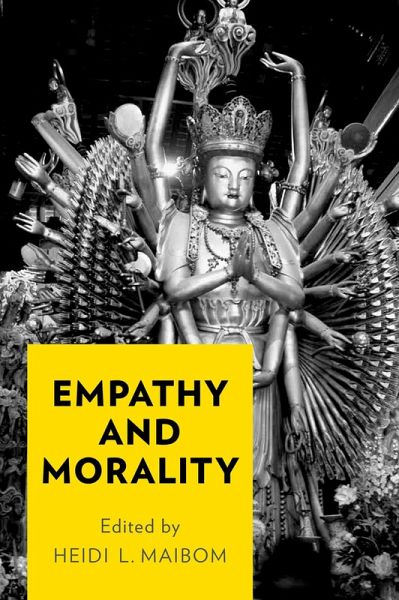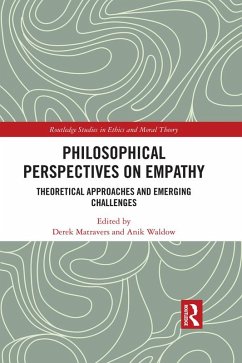
Empathy and Morality (eBook, PDF)
Versandkostenfrei!
Sofort per Download lieferbar
34,95 €
inkl. MwSt.
Weitere Ausgaben:

PAYBACK Punkte
17 °P sammeln!
The relationship between empathy and morality has long been debated. Adam Smith and David Hume famously argued that our tendency to feel with our fellow human beings played a foundational role in morality. And while recent decades have seen a resurgence of interest in the idea that empathy or sympathy is central to moral judgment and motivation, the view is nonetheless increasingly attacked. Empathy is so morally limited, some argue, that we should focus our attention elsewhere. Yet the importance of our capacities to feel with and for others is hard to deny. This collection is dedicated to th...
The relationship between empathy and morality has long been debated. Adam Smith and David Hume famously argued that our tendency to feel with our fellow human beings played a foundational role in morality. And while recent decades have seen a resurgence of interest in the idea that empathy or sympathy is central to moral judgment and motivation, the view is nonetheless increasingly attacked. Empathy is so morally limited, some argue, that we should focus our attention elsewhere. Yet the importance of our capacities to feel with and for others is hard to deny. This collection is dedicated to the question of the importance of these capacities to morality. It brings together twelve original papers in philosophy, psychology, psychiatry, anthropology, and neuroscience to give a comprehensive overview of the issue and includes an extensive survey of empathy and empathy-related emotions. Some contributors argue that empathy is essential to core cases of moral judgments, others that empathic concern and moral considerations give rise to wholly distinct motives. Contributors look at such issues as the absence of empathy in psychopaths, the use of empathy training for rehabilitating violent offenders, and the presence of empathy in other primates. The volume is distinctive in focusing on the moral import of empathy and sympathy.
Dieser Download kann aus rechtlichen Gründen nur mit Rechnungsadresse in A, B, BG, CY, CZ, D, DK, EW, E, FIN, F, GR, HR, H, IRL, I, LT, L, LR, M, NL, PL, P, R, S, SLO, SK ausgeliefert werden.













